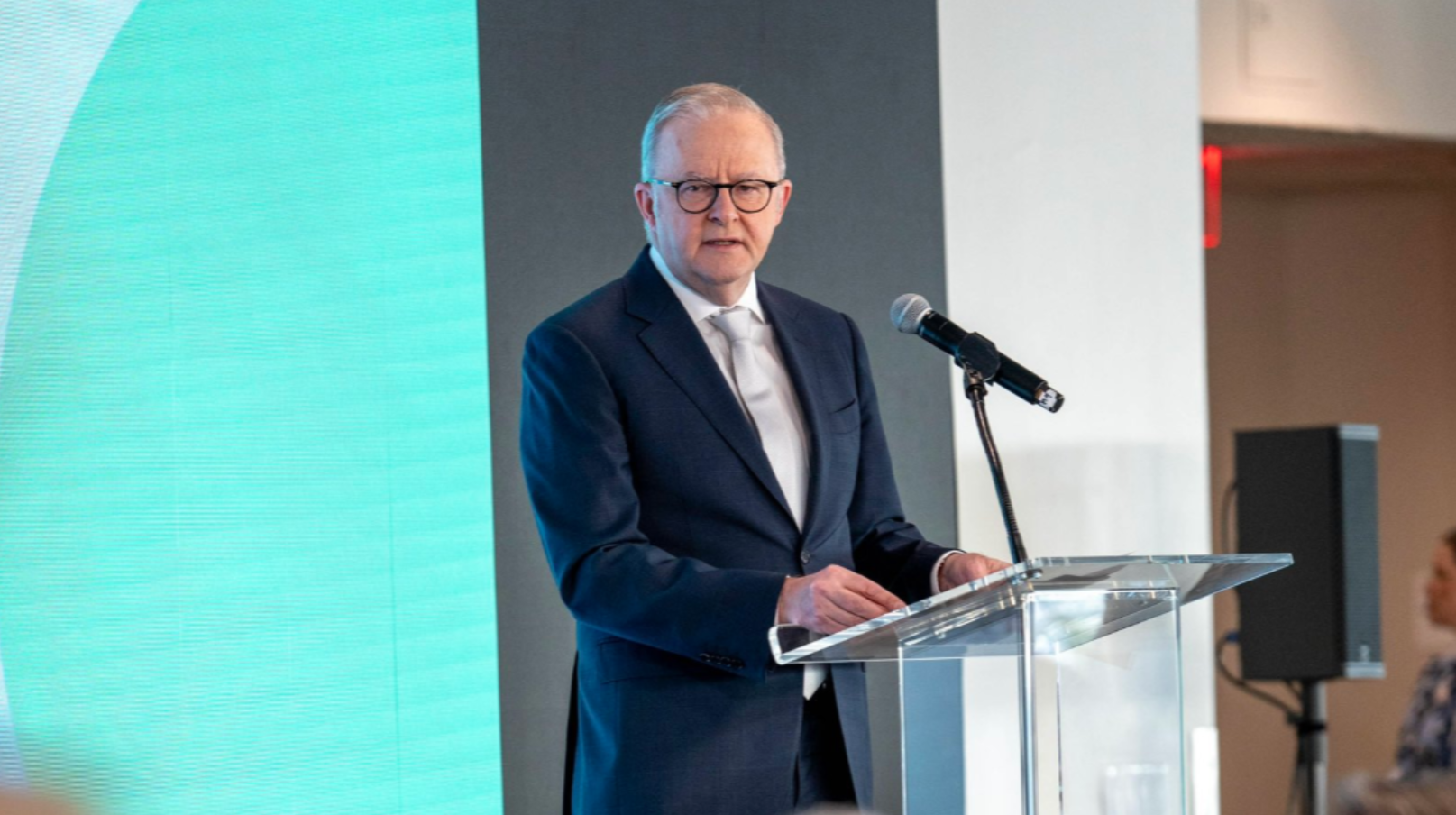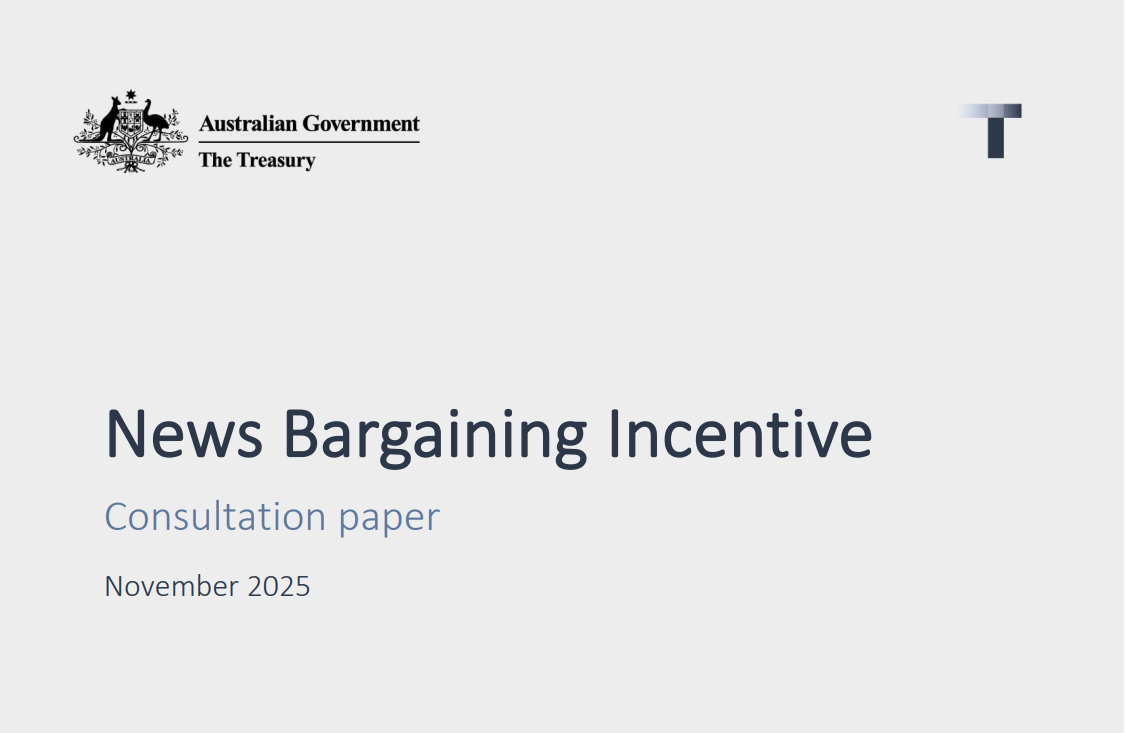
News bargaining incentive back on the agenda
The Albanese government has finally put in motion the News Bargaining Incentive (NBI) announced in December 2024, issuing a consultation paper with proposed details on its implementation.
The NBI aims to force large digital platforms to make deals with news publishers under the News Media Bargaining Code (NMBC), or else face a more costly tax on Australian revenues.
The discussion paper, published Thursday by the Treasury, steps out the proposed mechanism for offsetting news deals against a mandatory tax for large online platforms — rewarding those who play ball with local publishers.
Enjoying Mumbrella? Sign up for our free daily newsletter.
The incentive will apply to large digital platforms — the proposed size is $250m in gross annual revenue and over — that operate significant social media or search services in Australia, regardless of whether they carry news or not. It will not apply to dating, gaming, or instant messaging services.
If implemented as modelled, it’s designed so that platforms pay around 1.5% of their Australian revenue to news publishers via deals, or else face a 2.25% charge on that revenue if they don’t.

Anthony Albanese is cracking down on the overseas tech companies. This consultation paper follows the recent announcement that Australian content quotas will apply to overseas streamers
The paper explains: “Large digital platforms that choose not to enter or renew commercial agreements supporting Australian journalism will pay the incentive, whereas platforms that do engage in commercial agreements and support will be able to reduce their liability, ideally to nil, with a deduction.”
The NMBC — “the code” — that the NBI supports was initially successful in forcing digital platform who carry news content to pay Australian publishers approximately $200 to $250 million a year.
However, it also incentivised platforms to simply withdraw news entirely to avoid designation under the code. This is what Meta, whose deals are estimated to have worth been around $70 million a year to Australian news publications, threatened to do in late 2023 when it decided not to renew its news deals.
As the paper explains: “A withdrawal of news from any large platform would affect all news publishers in Australia, regardless of whether they have commercial deals.”
The new incentive aims to close this loophole.
It is designed to promote commercial deals “in markets with a competitive imbalance” and will be defined so that it doesn’t inadvertently capture services that don’t generate significant digital advertising revenue. To this end, the government is consulting with stakeholders on definitions for “social media”, “search services”, “large” and “significant”.
It also offers an alternative measure based on revenue attributable to digital advertising, “since the rationale of the incentive is that the entities benefitting the most from the digitalisation of advertising should contribute to the public good of news media”.
It notes, however, the “increase[d] complexity in administration” of this latter metric, and would only recommend this if measuring by gross avenue revenue results in “unintended outcomes”.
“Significance” will take in account revenue, plus market power, the size of its Australian user base, and whether or not it operates a monopoly.
The tax liability will be calculated either as a percentage of revenue from three years prior, or as a portion of digital advertising revenue, with Treasury recommending the former as “the simplest option”.
Based on modelling from an estimated 30 commercial deals worth $200-$250 million, Treasury estimates the original code saw Google and Meta pay publishers around 1.5% of their annual revenue.
Therefore, it recommends the incentive rate to be set at 2.25% of revenue, in order to incentivise deals equivalent to this 1.5% figure.
“This will be set such that in-scope entities will be better off supporting Australian news media production than incurring an incentive liability,” the paper notes.
It further explains “the incentive is not intended to raise any [government] revenue, and those entities that are already engaging in commercial deals should not face unduly complex compliance rules to report a nil liability.”
The government is asking for stakeholder feedback regarding definitions for the threshold for application; the rate of the charge and details on how the deductions will work; potential considerations around this being implemented; the regulatory costs for the digital platforms; and any potential interactions with other government assistance programs, tax laws, and codes.
Consultation closes on December 19, after which time legislation will be drafted. The code will take effect from January 1.



